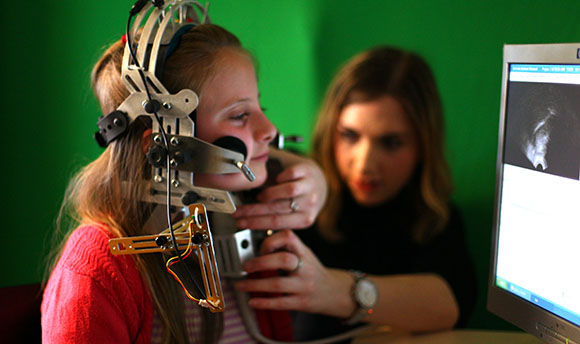Dr Rachel Mapson is a registered British Sign Language/English interpreter with over 23 years of experience of work in a wide variety of domains but with particular experience of medical, educational/academic and workplace interpreting. Dr Rachel Mapson is a lecturer in Sign Language Interpreting at Queen Margaret University.
- Overview
- Research Interests
- Research Publications
- Teaching & Learning
I completed my PhD in 2015 which, like my initial interpreter training, was studied through the University of Bristol.My doctoral research was a qualitative study exploring how BSL/English interpreters recognise and reflect im/polite language from BSL into spoken English, including the various influences that impact on choice of interpreting strategy.
My research has also included study of the way im/politeness is conveyed in British Sign Language.Before training as an interpreter I had extensive experience of course administration, including programme management of an open-learning MBA within a private sector/HE partnership.
I joined the staff at Queen Margaret University in September 2016 in order to develop the MSc in Advancing Practice in Signed/Spoken Language Interpreting on which I am now Programme Leader. I work part-time at the University alongside my continuing professional practice as a self-employed interpreter.
My doctoral thesis titled ‘Interpreting linguistic politeness from British Sign Language to English’ was completed in 2015. This was a qualitative study that included a preliminary study of what might be considered ‘polite’ in British Sign Language, followed by the main research which involved a series of semi-structured group interviews with highly experienced BSL/English interpreters to explore how they reflect im/politeness when working into English.
Active research interests:
Pragmatics, im/politeness, BSL/English interpreting, multimodal im/politeness
Research methods:
Qualitative semi-structured interviews, discourse analysis, thematic analysis
Rachel's teachings focus on theory and practice of interpreting, interpreting in healthcare settings, interpreting in educational settings, interpreting in arts & culture settings and other modules on the MSc Advancing Practice in Signed/Spoken Language Interpreting. She also teaches communication skills and how to work with interpreters on other programmes within the School of Health Sciences.


